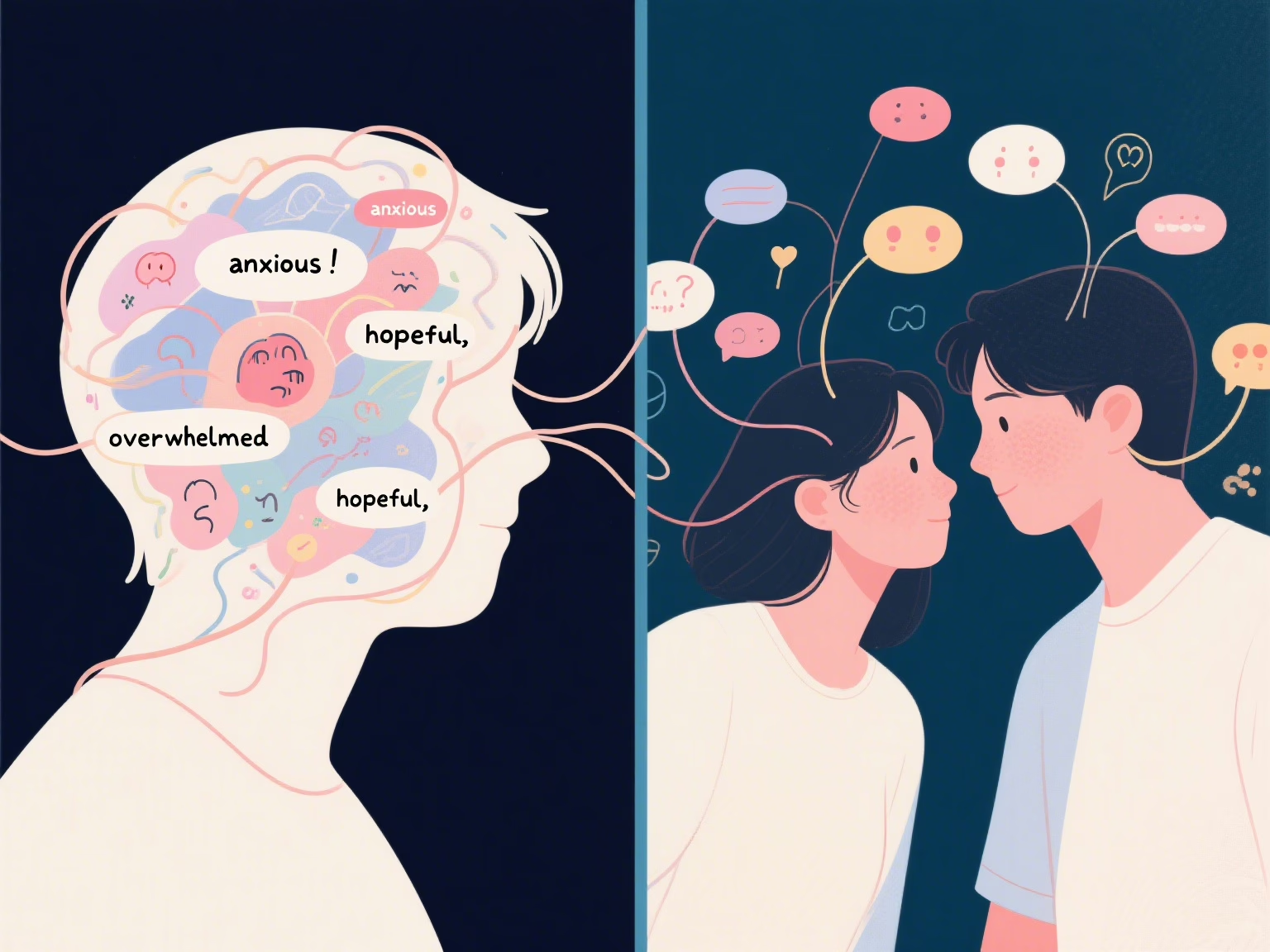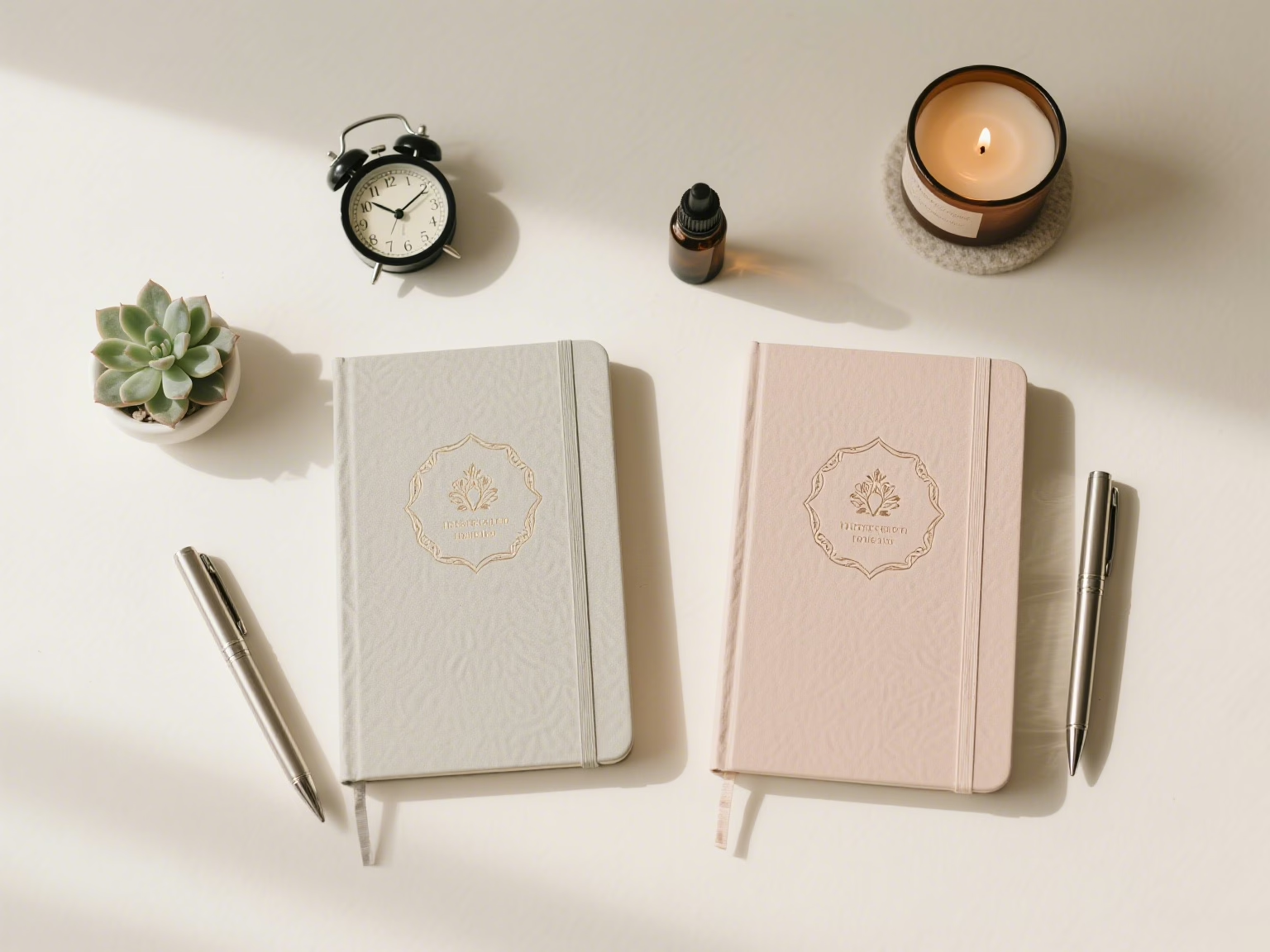
Imagine understanding your partner’s inner world so deeply that you could anticipate their needs, comfort their fears, and celebrate their joys as if they were your own. This isn’t fantasy—it’s the power of couple empathy, and emotional journaling is one of the most effective ways to develop it.
Emotional journaling for couples goes beyond traditional diary writing. It’s a structured practice that helps partners explore their feelings, understand each other’s perspectives, and build the emotional intelligence that forms the foundation of lasting relationships. When couples commit to this practice together, they create a bridge between their inner worlds that transforms how they connect, communicate, and care for each other.
Research from leading relationship experts shows that empathy is the single strongest predictor of relationship satisfaction and longevity. Yet many couples struggle to truly understand each other’s emotional experiences. Emotional journaling provides a practical, accessible way to develop this crucial skill while deepening intimacy and trust.
Understanding Couple Empathy: More Than Just Sympathy
Empathy in relationships is often misunderstood. It’s not simply feeling bad when your partner is upset or trying to fix their problems. True couple empathy involves the ability to understand and share your partner’s emotional experience while maintaining your own emotional boundaries.
The Three Components of Couple Empathy:
- Cognitive Empathy: Understanding what your partner is thinking and why
- Emotional Empathy: Feeling with your partner without losing yourself in their emotions
- Compassionate Empathy: Taking action to support your partner based on your understanding
Emotional journaling develops all three components by creating space for reflection, emotional processing, and intentional response rather than reactive behavior.

The Science Behind Emotional Journaling for Relationships
Neuroplasticity and Emotional Intelligence
When we write about our emotions, we activate the prefrontal cortex—the part of the brain responsible for emotional regulation and empathy. Regular journaling literally rewires the brain to become more emotionally intelligent and empathetic.
Dr. Matthew Lieberman’s research at UCLA shows that when we put feelings into words, we activate the right ventrolateral prefrontal cortex, which has an inhibiting effect on the amygdala (the brain’s alarm system). This means emotional journaling helps partners respond thoughtfully rather than reactively.
The Perspective-Taking Effect
Writing about experiences from multiple perspectives—your own and your partner’s—strengthens the neural networks associated with empathy. This practice helps partners move beyond their own emotional experience to genuinely understand their partner’s inner world.
Attachment Security Through Understanding
When partners feel truly understood, it strengthens their attachment bond. Emotional journaling creates a structured way for couples to demonstrate understanding, which increases feelings of security and connection in the relationship.
Getting Started: The Foundation of Emotional Journaling
Creating Your Emotional Journaling Practice
Materials Needed:
- Two dedicated journals (physical books work better than digital for this practice)
- Quality pens that feel good to write with
- A quiet, comfortable space for writing
- Consistent time set aside for the practice
Setting Intentions Together:Before beginning, discuss your goals as a couple. Are you looking to understand each other better? Work through a specific challenge? Deepen your emotional intimacy? Having shared intentions helps maintain commitment to the practice.

Establishing Ground Rules
Privacy and Sharing Agreements:
- Decide what portions of your journals you’ll share with each other
- Agree on how and when sharing will occur
- Respect each other’s need for private emotional processing space
- Create signals for when someone needs extra emotional support
Time and Consistency:
- Choose a regular time that works for both partners
- Start with 15-20 minutes, 3 times per week
- Be flexible but consistent with your schedule
- Allow for individual writing time before sharing
Week 1: Building Emotional Awareness
Day 1-2: Emotional Check-ins
Begin with simple emotional awareness exercises. Each partner writes about their current emotional state, what influenced it, and how it might be affecting their relationship.
Prompts to Start With:
- “Right now, I’m feeling…”
- “The strongest emotion I experienced today was…”
- “Something that affected my mood today was…”
- “I wish my partner knew that I’m feeling…”
Day 3-4: Trigger Identification
Write about situations that consistently trigger strong emotional responses. Understanding your triggers helps your partner empathize with your reactions.
Exploration Questions:
- “I tend to feel defensive when…”
- “Something that always makes me anxious is…”
- “I feel most loved and secure when…”
- “A situation that brings up past hurt is…”

Day 5-7: Partner Perspective Practice
This is where empathy building truly begins. After writing about your own experience, spend time writing from your partner’s perspective about the same situation.
Perspective-Taking Exercise:
- Write about a recent interaction from your viewpoint
- Then write about the same interaction from your partner’s likely perspective
- Include what they might have been feeling, thinking, and needing
- Reflect on how this different perspective changes your understanding
Week 2: Deepening Understanding Through Shared Experiences
Emotional Archaeology
Explore how past experiences shape current emotional responses. When partners understand each other’s emotional history, they can respond with greater empathy and less judgment.
Guided Questions:
- “A childhood experience that still affects how I react is…”
- “Something from my past that my partner should know about is…”
- “When I react strongly to [specific situation], it’s often because…”
- “I learned to cope with difficult emotions by…”
Values and Belief Exploration
Understanding each other’s core values and beliefs creates empathy for why certain situations feel particularly important or threatening to your partner.
Values Reflection Prompts:
- “Something I value deeply that influences my emotions is…”
- “A belief I hold that affects how I see relationships is…”
- “When this value feels threatened, I tend to…”
- “I wish my partner understood how important [specific value] is to me”

Advanced Empathy-Building Techniques
The Empathy Map Exercise
Create visual representations of each other’s emotional experiences using empathy mapping techniques.
Four Quadrants to Explore:
- Think: What thoughts run through your partner’s mind in specific situations?
- Feel: What emotions do they experience?
- See: What do they observe in their environment that influences their emotions?
- Do: How do they typically respond or behave?
Emotional Weather Reports
Develop a shared language for describing emotional states using weather metaphors. This creates a gentle, non-threatening way to communicate complex feelings.
Examples:
- “I’m feeling stormy today” (angry or turbulent)
- “I’m in a foggy place” (confused or unclear)
- “I’m experiencing scattered showers” (intermittently sad)
- “It’s sunny with light clouds” (generally happy with minor concerns)
The Empathy Bridge Technique
When conflicts arise, use journaling to build understanding before attempting resolution.
Three-Step Process:
- Individual Processing: Each partner writes about the conflict from their perspective
- Empathy Building: Write about the conflict from your partner’s perspective
- Bridge Finding: Identify common ground, shared values, and mutual understanding

Monthly Empathy Challenges
Challenge 1: The Appreciation Investigation
Spend a week focusing entirely on understanding and documenting what your partner appreciates, values, and finds meaningful.
Daily Focus:
- Monday: What makes your partner feel loved?
- Tuesday: What achievements are they most proud of?
- Wednesday: What activities bring them joy?
- Thursday: What support do they most value from you?
- Friday: What hopes and dreams energize them?
- Weekend: Synthesize and share your discoveries
Challenge 2: The Stress Empathy Project
Dedicate time to understanding your partner’s stress patterns and developing empathetic responses.
Investigation Areas:
- What situations consistently stress your partner?
- How do they typically respond to stress?
- What helps them feel better during stressful times?
- How can you better support them during these moments?
- What stress signals should you watch for?
Challenge 3: The Joy Amplification Exercise
Focus on understanding and amplifying your partner’s positive emotions.
Exploration Points:
- What brings your partner genuine happiness?
- How do they express joy differently than you?
- What role do you play in their happiness?
- How can you better celebrate their successes?
- What shared experiences bring you both joy?

Overcoming Common Challenges
“I Don’t Know What to Write”
Solution Strategies:
- Start with simple emotion words and expand from there
- Use prompts consistently until writing becomes more natural
- Remember that there’s no “right” way to journal
- Focus on honesty rather than eloquence
“My Partner Doesn’t Want to Share”
Gentle Approaches:
- Model vulnerability by sharing first
- Respect boundaries while maintaining your own practice
- Focus on building safety and trust over time
- Consider starting with less vulnerable topics
“We Keep Fighting About What We Write”
Conflict Prevention:
- Establish clear sharing agreements upfront
- Remember the goal is understanding, not agreement
- Practice listening without immediately responding
- Use “I” statements when discussing journal content
“It Feels Too Time-Consuming”
Time Management Solutions:
- Start with just 10 minutes, twice a week
- Use voice memos if writing feels overwhelming
- Focus on quality over quantity
- Remember that this is an investment in your relationship’s future

The Long-Term Benefits of Emotional Journaling
Enhanced Emotional Intimacy
Couples who practice emotional journaling report feeling more emotionally connected and understood. The practice creates ongoing opportunities for vulnerability and acceptance, which are the foundations of deep intimacy.
Improved Conflict Resolution
When partners understand each other’s emotional patterns and triggers, they can navigate disagreements with greater empathy and skill. Conflicts become opportunities for understanding rather than battles to be won.
Increased Relationship Satisfaction
Research consistently shows that empathy is one of the strongest predictors of relationship satisfaction. Couples who actively build empathy through practices like emotional journaling report higher levels of happiness and fulfillment in their relationships.
Personal Growth and Self-Awareness
The practice doesn’t just build empathy for your partner—it also increases self-awareness and emotional intelligence. Many individuals find that emotional journaling helps them understand their own patterns and reactions more clearly.
Strengthened Communication Skills
Regular reflection on emotions and perspectives improves overall communication. Partners become better at expressing their needs, listening empathetically, and responding thoughtfully rather than reactively.
Creating Your Sustainable Practice
Building Consistency
Start Small: Begin with 15 minutes, twice a weekCreate Rituals: Link journaling to existing habits like morning coffee or evening wind-downBe Flexible: Adjust timing and frequency as needed, but maintain some consistencyCelebrate Progress: Acknowledge improvements in understanding and connection
Maintaining Momentum
Regular Reviews: Monthly check-ins about how the practice is serving your relationshipEvolving Prompts: Change focus areas to keep the practice fresh and relevantExternal Support: Consider joining couples’ groups or workshops that support empathy-buildingProfessional Guidance: Relationship counselors can provide additional prompts and techniques
Integration with Daily Life
The ultimate goal is for the empathy and understanding developed through journaling to naturally flow into your daily interactions. Look for opportunities to apply your insights in real-time conversations and conflicts.
Conclusion: Your Journey Toward Deeper Connection
Emotional journaling is more than a relationship exercise—it’s a pathway to the kind of deep, empathetic connection that transforms partnerships. When couples commit to understanding each other’s inner worlds, they create a foundation of empathy that supports them through challenges and amplifies their joys.
The practice requires consistency, vulnerability, and patience, but the rewards are immeasurable. Partners who develop strong empathy skills report feeling more loved, understood, and connected than they ever thought possible. They navigate conflicts with greater skill, celebrate successes more fully, and build the kind of relationship that serves as a source of strength and joy throughout their lives.
Start tonight with a simple question: “What is my partner feeling right now, and how can I understand that experience more deeply?” Write about your observations, your curiosity, and your commitment to seeing through their eyes. This single act of empathetic reflection is the first step toward the deeper connection you both deserve.
Remember, building empathy is not a destination but a journey. Every moment you spend trying to understand your partner’s emotional world is an investment in your relationship’s future. The couples who thrive are those who never stop trying to understand each other more deeply.
Your journey toward greater couple empathy begins with a single journal entry, a willingness to be vulnerable, and the commitment to see your partner’s world through their eyes. Take that first step tonight—your relationship will be transformed because of it.
